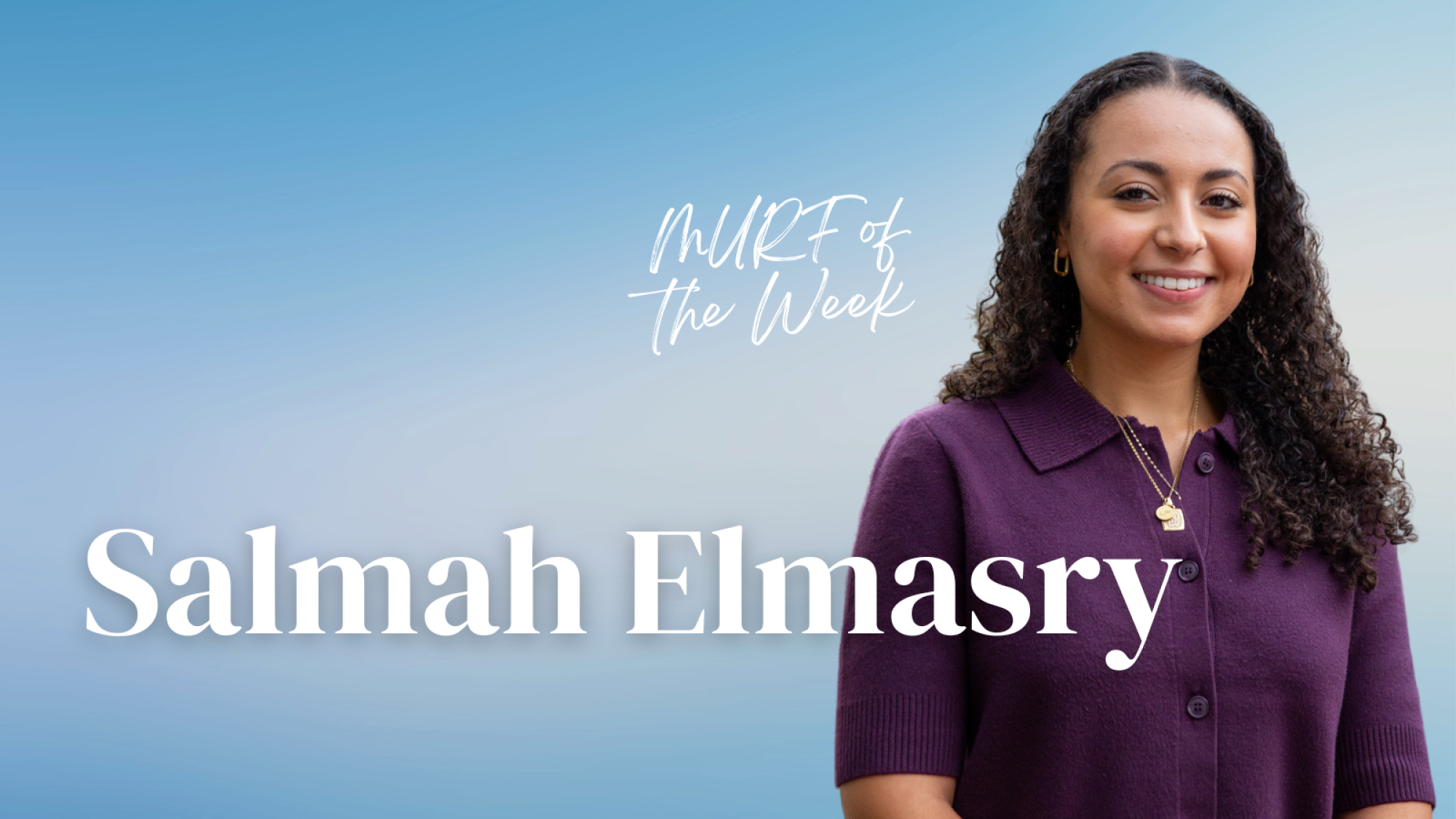Salmah Elmasry is a member of the Class of 2025 in the School of Foreign Service studying International Politics. She is also completing a Master of Arts in Arab Studies. As an Egyptian-American, she has developed a strong interest in gender, social movements, and post-colonialism in North Africa. After assisting Professor Killian Clarke with his research on the origins of counterrevolutions and revolutions, Salmah’s work now focuses on an independent research project on protest art and transnationalism during the 2011 uprisings in Egypt and Tunisia. Outside of being a MURF, Salmah is the publisher of Georgetown’s international affairs newspaper and enjoys reading, baking, and running.
What has been the most valuable part of your MURF experience?
Mortara has allowed me to develop a close, working relationship with my Mortara advisor, Professor Killian Clarke, which has been invaluable to my research experience. Aside from sharing his extensive knowledge and providing guidance on my research and academic work, Professor Clarke is a trusted source on campus with whom I am very grateful to have learned from.
How has MURF shaped your academic or career goals?
Mortara has encouraged me to study subjects and methods outside of my typical areas of interest, which has solidified my passion for academic writing and research. The program has demonstrated how research can expand our understanding of other cultures, political philosophies, and peoples, and imagine new ways of conceptualizing justice, which has made me eager to pursue a career in academia.
Tell us about a research project you worked on
This summer, Mortara generously supported an independent research project where I had to opportunity to interview artists and activists involved in the 2011 uprisings in North Africa. I had the privilege of documenting the stories of brave women who demonstrated in repressive contexts and write a research paper on their alliance with radical feminists in Europe. Conducting relational interviews and emphasized the importance centering research around telling individuals’ stories and my fascination with storytelling.
